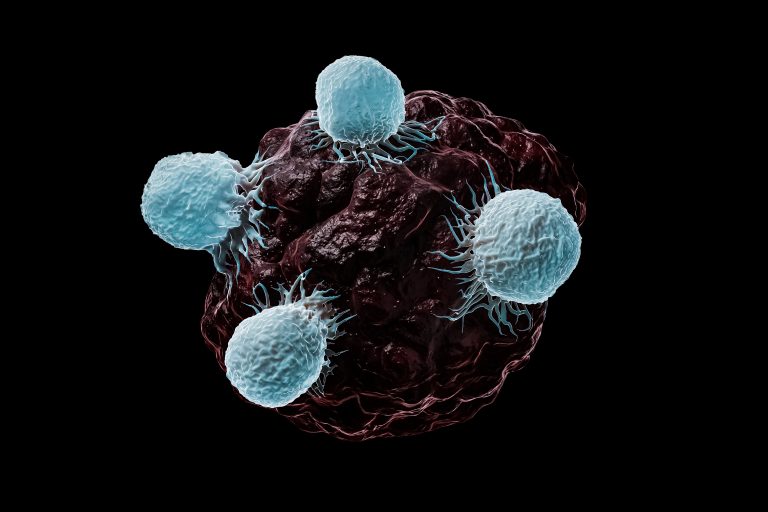
When it comes to fats, there are good, bad, and saturated.“Bad” fats—trans fats—increase disease risk, even when eaten in small quantities. Foods containing trans fats are primarily processed foods made with trans fat from partially hydrogenated oil. A new study by scientists at the Salk Institute demonstrates how “bad fats” hinder killer T cells from fighting cancer cells.
Their findings are published in the journal Immunity in a paper titled, “Uptake of oxidized lipids by the scavenger receptor CD36 promotes lipid peroxidation and dysfunction in CD8+ T cells in tumors,” and led by professor and director of Salk’s NOMIS Center for Immunobiology and Microbial Pathogenesis Susan Kaech, Ph.D.
“A common metabolic alteration in the tumor microenvironment (TME) is lipid accumulation, a feature associated with immune dysfunction,” the researchers wrote. “Here, we examined how CD8+ tumor infiltrating lymphocytes (TILs) respond to lipids within the TME.”
While scientists know that tumors accumulate fats, and that the accumulation is associated with immune dysfunction, the details of the relationship were not fully understood. Their findings suggest that the tumor microenvironment contains an abundance of oxidized fat molecules that suppress killer T cells’ ability to kill cancer cells when ingested. The T cells, in need of energy, increase the level of a cellular fat transporter, CD36, that unfortunately saturates them with even more oxidized fat and continues the vicious cycle.
“We know that tumors are a metabolically hostile environment for healthy cells, but elucidating which metabolic processes are altered and how this suppresses immune cell function is an important area of cancer research that is gaining a lot of attention,” said Kaech. “Our findings uncovered a novel mode of immunosuppression in tumors involving the import of oxidized fats (AKA lipids) in T cells via the cellular fat transporter CD36, which impairs their anti-tumor functions locally.”
The researchers collaborated with Joseph Witztum’s lab at UC San Diego and Antonio Pinto in the Salk Mass Spectrometry Core facility, and established that tumors contain elevated amounts of several classes of lipid, and oxidized lipids that are found in oxidized low-density lipoproteins (LDLs), commonly referred to as “bad” fat.
The researchers observed how killer T cells respond to the oxidized LDLs in tumors and found that killer T cells adapted to the tumor microenvironment by increasing CD36 on their surface and ingesting a significant amount of oxidized lipids.
After testing different methods to observe how CD36 impaired killer T cell function, researchers created mouse models lacking CD36 on T cells and used antibodies to block CD36. They discovered that T cells shut down their anti-tumor functions when they get stressed out by oxidized lipids.
The researchers also found new therapeutic opportunities to lower lipid oxidation and reactivate killer T cells’ function.
“Now that we’ve uncovered this vulnerability of T cells to lipid oxidation stress, we may need to find more selective approaches to inducing lipid oxidation in the tumor cells but not in the T cells,” added Kaech. “Otherwise, we may destroy the anti-tumor T cells in the process, and our work shows a few interesting possibilities for how to do this.”













